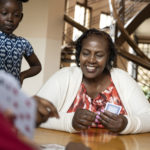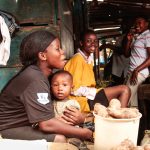Despite being the only region in the world where there are more female entrepreneurs than men, the vast majority of female-owned businesses in Sub-Saharan Africa are microenterprises and women’s businesses earn 34% lower profits than male-owned ones. Identifying the constraints faced by female entrepreneurs is vital for fostering economic growth. Recent studies have shown that…
Female Entrepreneurship and Professional Networks
Education and Labour Market Dynamics in a Period of Rapid Education Expansion:
Recognizing the need for policies that address poverty and inequality and build social cohesion, the Ghanaian government rolled out free compulsory primary education in 1996 and free senior high school provision in 2017. With the first cohorts exposed to the free education policies now reaching prime adulthood, our project aims to take stock of how…
Women’s Employment and Family Decisions in Sub-Saharan Africa
Our project studies the role of the public sector and the opportunities it can provide for women’s employment and the gender pay gap in low-income countries (LICs). Using the preliminary evidence from microdata for a number of SSA countries, we show that the public sector in poor economies behaves very differently from private firms: it…
Differential Earnings, Household Division of Labour and Fertility Choices: An Application of the “Doing Gender” Hypothesis in Ghana
The project aims to examine the evidence for the “Doing Gender” hypothesis in Ghana. We examine whether greater earnings by Ghanaian women is associated with increased household bargaining power, proxied by the division of housework between a woman and her husband. The study is relevant as the issue of the division of domestic work has…



